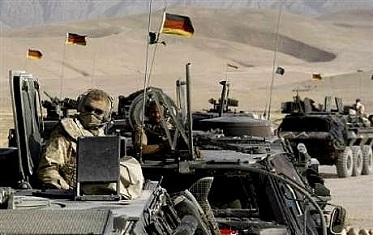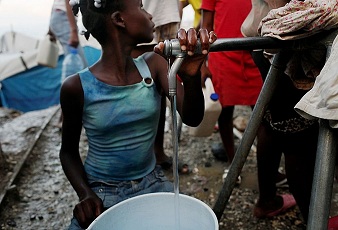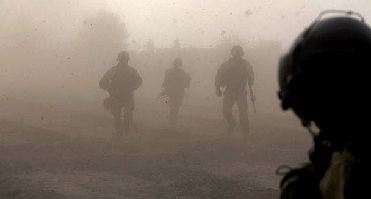James Cogan
WSWS
 Armoured personnel carriers of the German ISAF Quick Reaction Force
Armoured personnel carriers of the German ISAF Quick Reaction Force
regional command north (QRF) are driven during a drill in the Marmal
mountains near the German ISAF headquarters in Masar-i-Sharif, north
of Kabul, July 1, 2008. (Credit: Reuters/Fabrizio Bensch)"The governments of every country represented at the Lisbon summit, whether in North America, Europe or the Pacific, are presiding over social devastation on behalf of the same capitalist oligarchy in whose interests the war is being waged. At the same time, they are using claims of “terrorist threats” to strip away democratic rights and prepare the framework for police-states."
The NATO summit that began yesterday in Lisbon, Portugal has one primary objective in regards to the US-led war in Afghanistan: to shelve all talk of President Barack Obama’s July 2011 deadline for beginning the withdrawal of troops.
In recent weeks, the Obama administration has banished the word “withdrawal” from its statements on Afghanistan. July 2011 has become simply the beginning of a “transition.”
The end of 2014 is now being invoked by the US and its allies as the key date in the war. By that time, the Army and National Police of the puppet Afghan regime of President Hamid Karzai will purportedly be sufficiently large and trained to undertake the main combat operations against the Taliban and other anti-occupation insurgent organisations.
US special envoy Richard Holbrooke told reporters this week in Pakistan:
“From Lisbon on, we will be on a transition strategy with a target date of the end of 2014 for Afghanistan to take over responsibility for leading the security.” American forces would still remain after that date, however. “We have a transition strategy. We do not have an exit strategy,” Holbrooke stressed.
The New York Times, having been briefed by administration officials, on November 14 summed up Obama’s perspective:
“By the end of 2014, American and NATO combat forces could be withdrawn if conditions warrant, although tens of thousands very likely will remain for training, mentoring and other assistance, just as 50,000 American troops are still in Iraq.”
In other words, Washington plans an indefinite presence of US occupation forces in Afghanistan. Even if “conditions warrant” that foreign troops are not required for direct combat by 2014—a prospect dismissed by virtually all analysts—the Pentagon will assert that an enduring presence is required to provide “training, mentoring and assistance.”



























